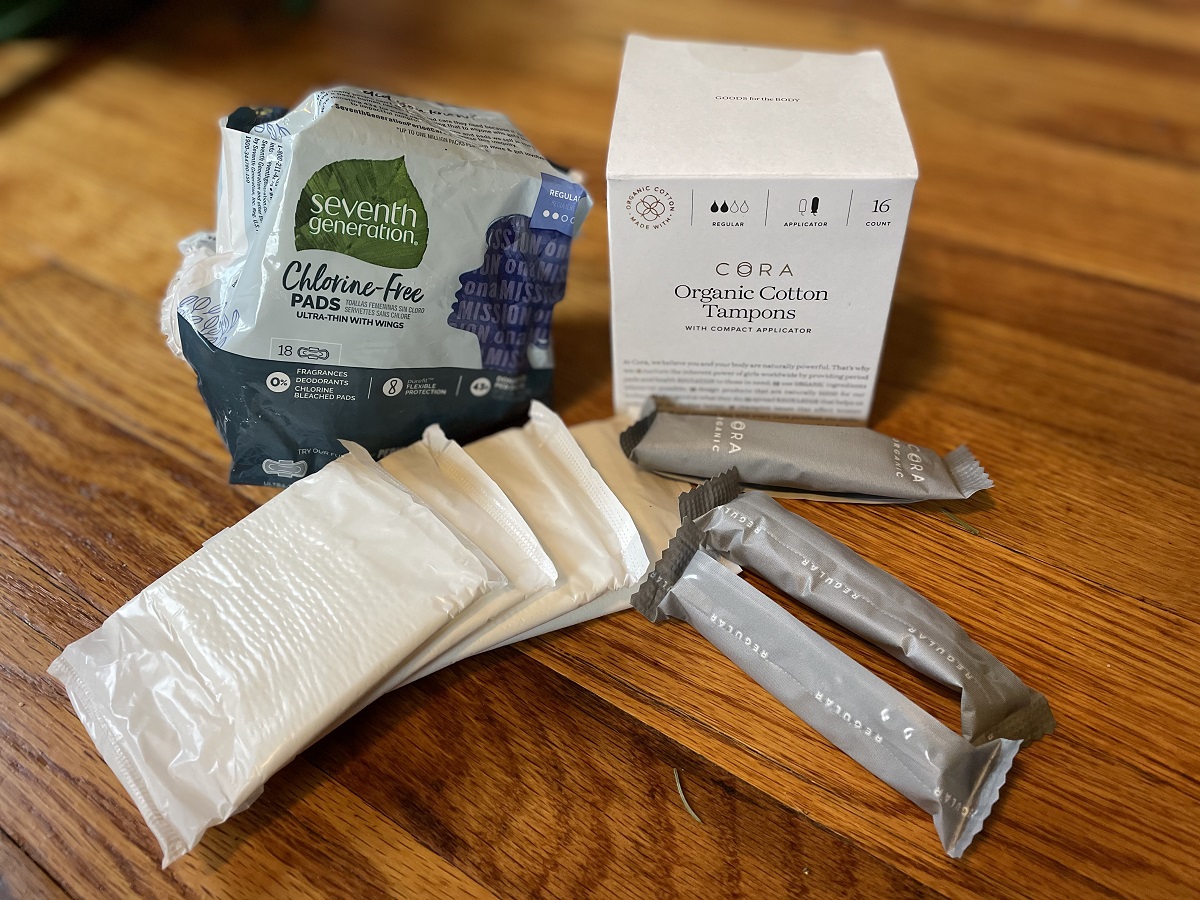Michigan Falling Behind Other States, Countries in Ending ‘Period Poverty’
Democratic state lawmakers are trying again to end Michigan’s “tampon tax,” which they call unconstitutional.

State lawmakers and advocates are renewing efforts to get rid of the sales tax on menstrual products in Michigan. It comes as many other states and countries are prioritizing policies they say will address the issue of “period poverty” as part of the menstrual equity movement.
MichMash hosts Cheyna Roth and Jake Neher talk about what makes this new push different from years past, and what’s happening in other places to make sure menstruation isn’t a driver of poverty or a reason to have to miss work or school.
Subscribe to MichMash on iTunes, Spotify, Google Podcasts, NPR One or wherever you get your podcasts.
Michigan has been part of the national movement to end the “tampon tax” for years. Legislative efforts — usually led by Democrats and women in the Legislature — have been underway for years to get rid of that 6% sales tax that’s tacked on to menstrual products.
Michigan collects almost $7 million annually in taxes on period supplies alone. Opponents of taxing these supplies say they are expensive enough without having that additional tax on a product that is medically necessary. The state does not tax various types of medication and other medical supplies.
So now, many women and their allies in Michigan are fighting the tax on two fronts. One is through legislation, and one is by suing the state Treasury Department.
“The Constitution is clear: It’s a discriminatory tax. For the government to impose a burden on a product that women must use. It’s a tax on women for being women.” –Joanne Faycurry, attorney representing the women in the lawsuit
Lawmakers, including men, sponsored bills in the state House and Senate once again in February. This is after having introduced roughly the same bills the previous year. Last year’s House bills got a committee hearing and that was about it, which is usually all these bills ever get.
There is also a group of women that have filed a lawsuit against the state Treasury on behalf of all women in Michigan saying the tax is unconstitutional. The argument is that women are being taxed for something they can’t control.
Joanne Faycurry, a lawyer representing the women in the lawsuit, told The Detroit News: “The Constitution is clear: It’s a discriminatory tax. For the government to impose a burden on a product that women must use. It’s a tax on women for being women.”
The lawsuit was filed last year. Lawmakers are hoping this will be the push the Legislature needs to take the issue seriously.
State Sen. Mallory McMorrow (D-Royal Oak) is a bill sponsor. She tweeted in August: “The last thing the state needs is defending a lawsuit against this unconstitutional tax on feminine hygiene products — already struck down in many other states. And we don’t have to.”
The last thing the state needs is defending a lawsuit against this unconstitutional tax on feminine hygiene products – already struck down in many other states. And we don’t have to. @WinnieBrinks and I have bills to make this right the right way. #mileghttps://t.co/PJOMCaVTW6
— Mallory McMorrow (@MalloryMcMorrow) August 12, 2020
This is all part of the overall movement to help eliminate what’s called “period poverty.” That’s when women and period-having individuals can’t afford products like pads and tampons every month, or when the cost of those products becomes a driver of poverty. That 6% tax on those goods is only part of the fight. There’s also the fact that pads and tampons are not covered by any government assistance programs, nor are other items needed during menstruation like toilet paper, soap and other hygiene products. And the tax on these products is something that other states have gotten rid of and that other countries don’t have.
New Zealand has been in the news a lot because of how well that country has dealt with COVID-19, but government officials have also been working to eliminate period poverty. The country is launching a pilot program that goes nationwide in June to provide free period products to all schools.
“What means for families is that the women and the girls, when they experience their cycle, they don’t go to school, they don’t go to work. Well, imagine what happens as that adds up over time.” — Lynne Golodner, host of the Make Meaning podcast
Lynne Golodner, host of the Make Meaning podcast and former Michigan journalist, spoke with New Zealand MP and Minister for Women Jan Tinetti about the program.
“The reason behind this really ties in with the way that they govern,” Golodner says, “which is by shared values. And one of the main purposes in Parliament there is to make New Zealand the best place to be a child.”
Golodner says ending period poverty is, in many ways, an effort to level the playing field for women.
“Poor families don’t have the resources to afford products for monthly cycles,” she says.
“And so that can be embarrassing. It can be messy, it can be really shaming. And what that what means for families is that the women and the girls, when they experience their cycle, they don’t go to school, they don’t go to work. Well, imagine what happens as that adds up over time.”
More from MichMash:
Sexist Language Reignites Conversations About Misogyny in State Government
COVID-19 Vaccines Appear To Be Working. But Some Recent Headlines Lack Context and Cause Confusion.
Michigan Legislature’s Family Leave Policies Fall Behind Rest of State
How Pandemic Politics Have Made Public Health Response More Difficult
Trusted, accurate, up-to-date
WDET is here to keep you informed on essential information, news and resources related to COVID-19.
This is a stressful, insecure time for many. So it’s more important than ever for you, our listeners and readers, who are able to donate to keep supporting WDET’s mission. Please make a gift today.

